Bulgarians decry ‘eco vandalism’ on coast
- Published
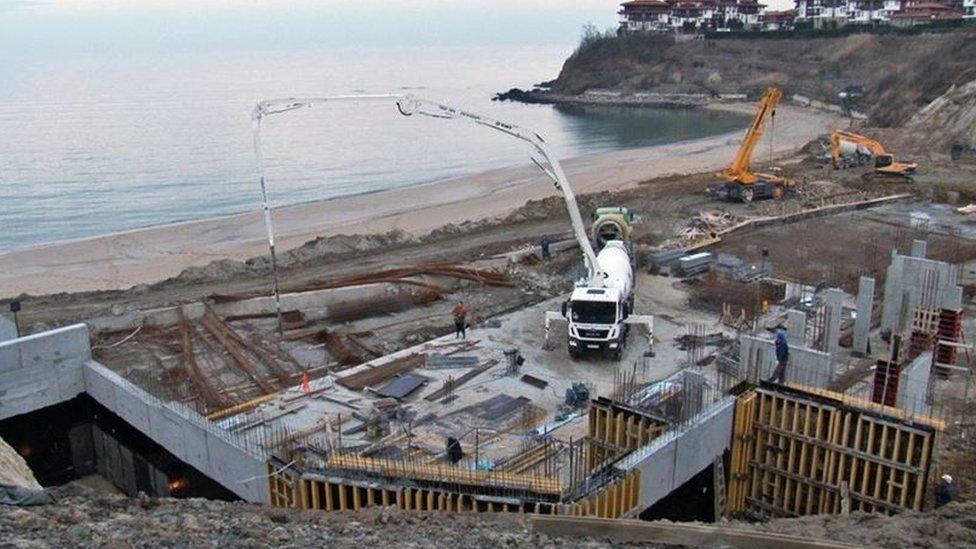
Social media pressure led to the temporary suspension of work at several building sites
It may not be the holiday season, but Bulgaria's Black Sea coast has been the focus of a lot of media attention in recent weeks.
After pictures emerged on social media earlier this month of a giant sand dune being bulldozed, there's been an angry reaction among eco activists and the general public.
On 12 January, Bulgarian musician and activist Vasil Gyurov posted pictures on Facebook, external with the caption: "This is what the protected dunes look like at the Smokiniya campsite. How convenient - in January. Scum!"
The post prompted disbelief on social media. Stefani Pavlova wrote, external: There'll be nothing left of this country... it's our fault that we put up with it. Lawlessness, anarchy... Our future looks black..."
'Act of vandalism'
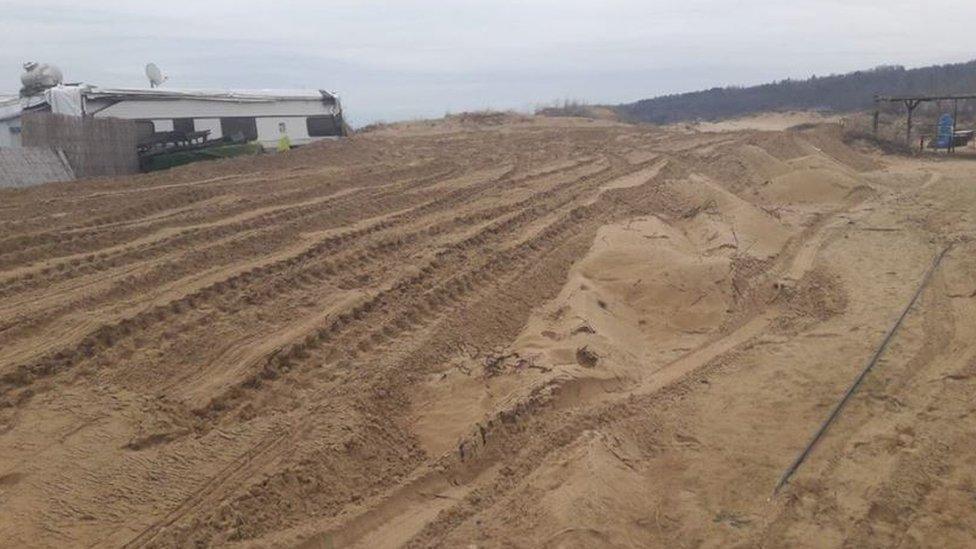
The bulldozed dune at Smokiniya
The coastal sand dunes are home to rare plants and enjoy protection under Bulgaria's environmental protection laws. Destroying a sand dune is illegal, even if it happens to be on private land.
"We were shaken after what we saw," said , externalTonka Atanasova, the head of the environmental inspectorate in the city of Burgas. "A giant dune being completely destroyed. It's an act of vandalism."
The photographs led to prosecutors and environmental authorities to start investigations, which resulted in the arrest of three men.
Soon, pictures of other building sites along the coast appeared, showing heavy machinery hard at work right next to beaches.
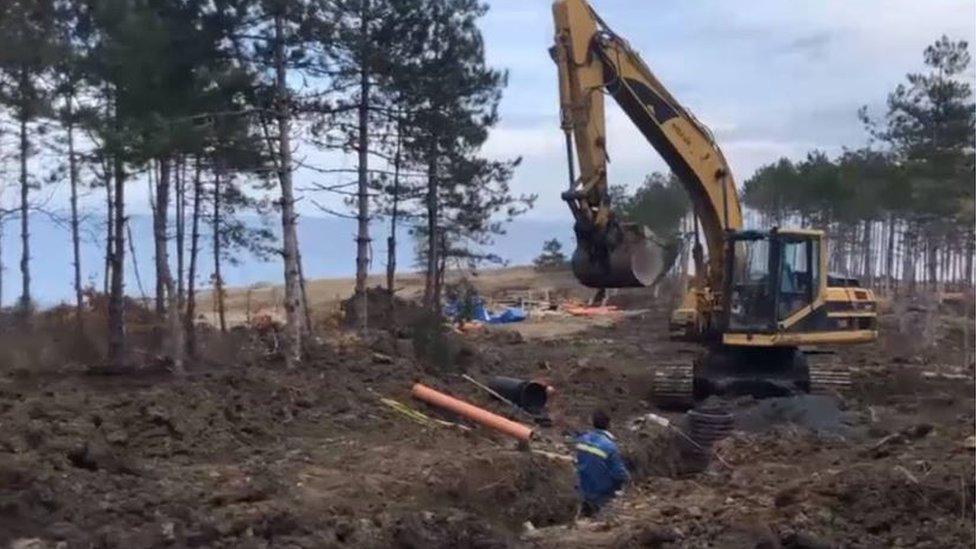
Activist Vasil Gurov wrote: "When 'experts' are sufficiently well paid, the forest is not a forest and the dune is not a dune"
Bulgaria's coastline has been transformed by a construction boom over the last couple of decades and this is not the first time authorities have been accused of allowing acts of environmental "vandalism".
The pressure to exploit the coastline commercially has often been compared to the construction fever along Spain's Costa Brava coast during the 1960s.
Recent news headlines, external have suggested that Brexit will bring a boost for the Bulgarian tourist industry. Tour operators have reported a surge in bookings from Brits seeking cheaper holiday destinations as the value of the pound has fallen against some other currencies.
Work temporarily halted
On 25 January, after weeks of media pressure, Bulgaria's National Construction Control Directorate said, external that it had ordered the suspension of construction at three sites on the country's southern Black Sea coast: at Gradina campsite near Sozopol, at the Arapiya area, and at Alepu.
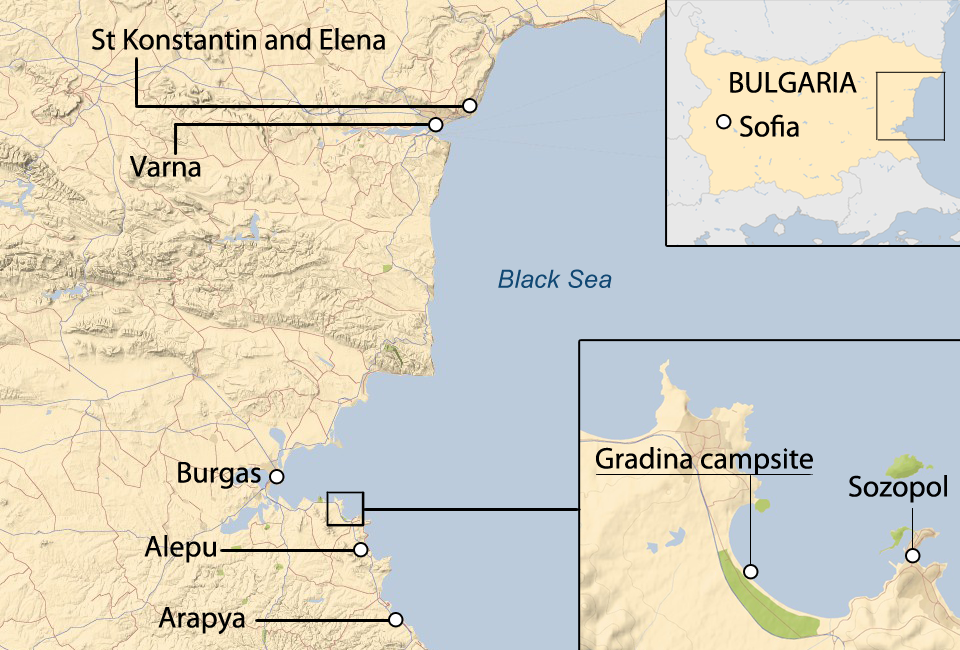
On 28 January, the directorate announced an inspection at another building site - at St Konstantin and Elena in the north.
It was widely reported that all that construction work had been approved at both ministerial and local levels, but authorities are conducting further inspections this week.
The coastal area forms a unique habitat for migrating birds and many rare plant species. There had been concerns that construction work would endanger the nesting site of the bee-eater bird.
One of the building sites is 500m away from the Alepu mud lake and falls on two protected areas, reports Kapital daily.
Sozopil mayor Panayot Reyzy explained to Nova TV, external that the documents that came with the building application were "according to all requirements".
"Private investment is the development of humankind," he said in defence of the project.
'It's all legal!'
Media outlets have run editorials and opinion pieces, external questioning the laws and regulations around construction on the coastline.
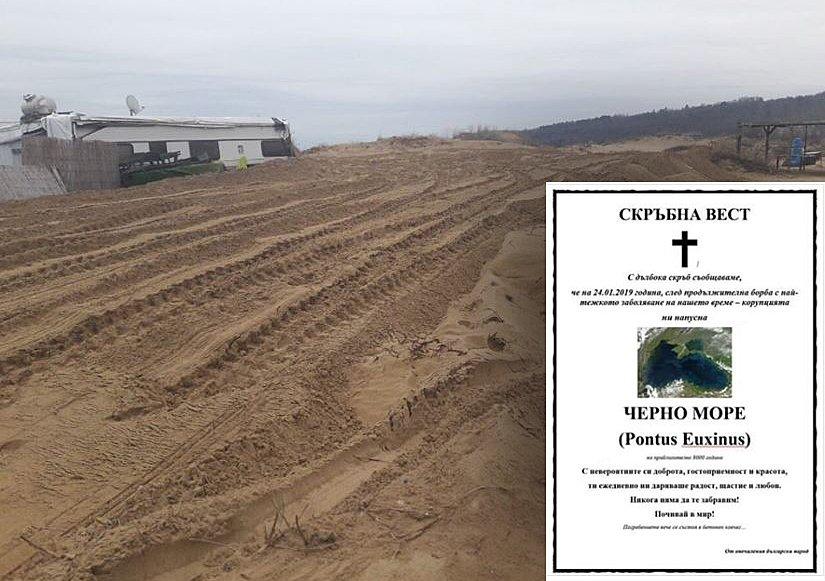
Some think it’s too late: A death notice appeared on Facebook mourning the departure of the Black Sea “from the heavy illness of corruption”
More than 70 per cent of the country's sand dunes are said, external to be on private land. This seems to be down in part to land being given agricultural status during the process of re-nationalisation after the fall of communism. Investigative journalists blame it on corruption in local councils.
You might also be interested in:
At a protest in Sofia on 28 January, there were calls, external for changes in the law that allows commercial development "to spoil the sea coast" and for the resignation of two ministers.
Vasil Gyurov, the activist who posted the first pictures, wrote sarcastically on Facebook: "It's all legal! Thank you, lawmakers!"
Reporting by Krassi Twigg
Next story: Tehran bans dog walking
Use #NewsfromElsewhere to stay up-to-date with our reports via Twitter, external.